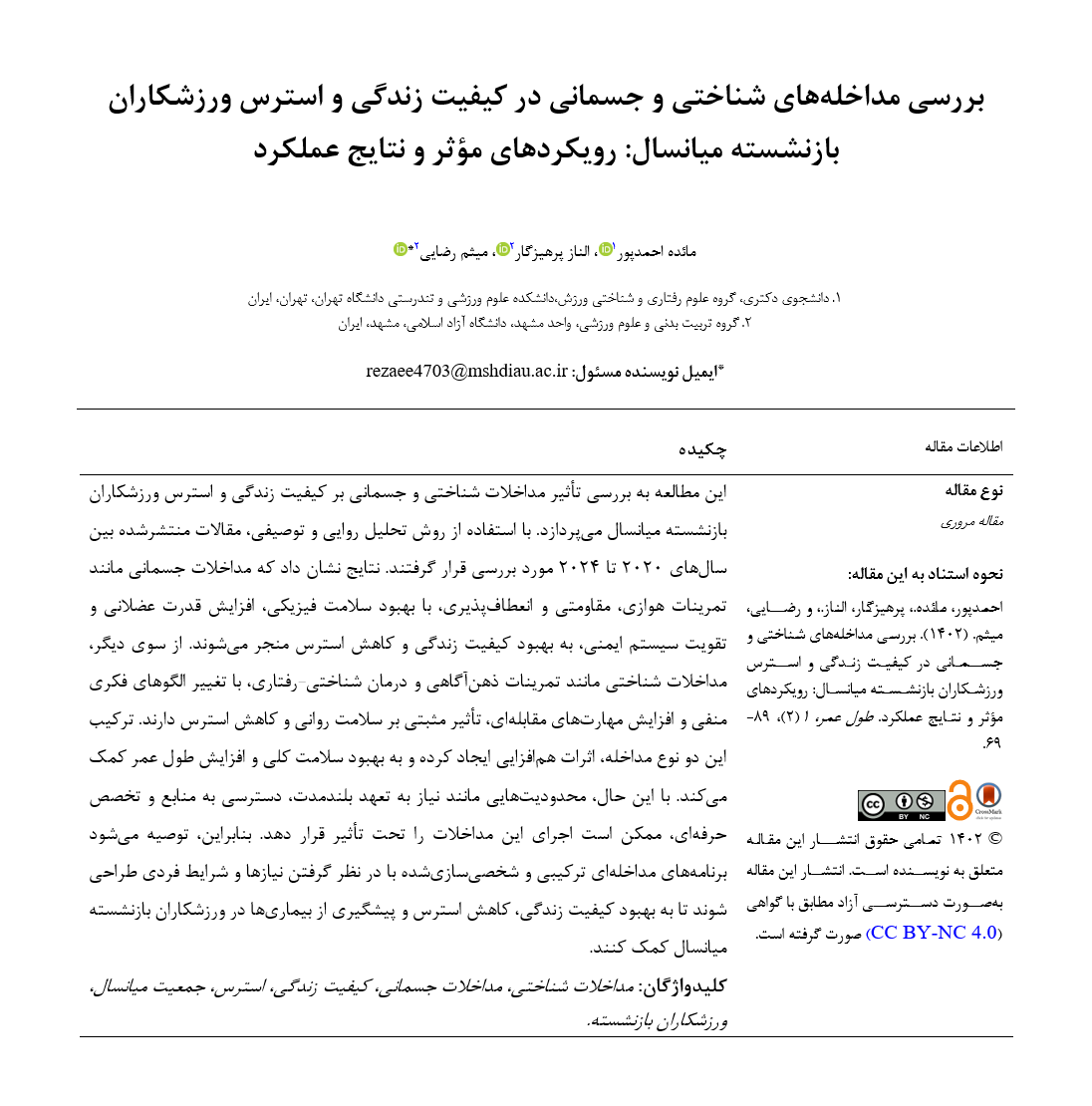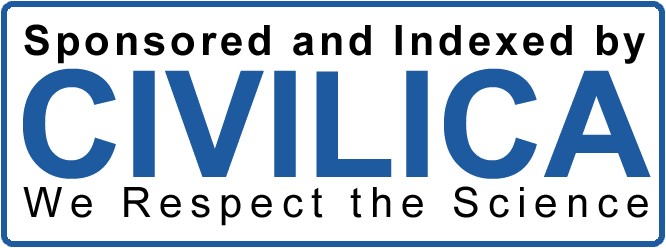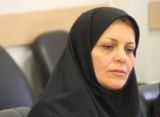Review of Cognitive and Physical Interventions on Quality of Life and Stress in Middle-Aged Retired Athletes: Effective Approaches and Performance Outcomes
Keywords:
Cognitive Interventions, Physical Interventions, Quality of Life, Stress, Middel-Aged Population, Retired AthletesAbstract
This study examines the impact of cognitive and physical interventions on the quality of life and stress among middle-aged retired athletes. Utilizing a narrative and descriptive analysis method, articles published between 2020 and 2024 were reviewed. The findings indicate that physical interventions such as aerobic, resistance, and flexibility exercises lead to improved physical health, increased muscle strength, and enhanced immune function, thereby improving quality of life and reducing stress. Conversely, cognitive interventions like mindfulness exercises and cognitive-behavioral therapy positively affect mental health and stress reduction by altering negative thought patterns and enhancing coping skills. The combination of these interventions creates synergistic effects that contribute to overall health improvement and increased longevity. However, limitations such as the need for long-term commitment, access to resources, and professional expertise may affect the implementation of these interventions. Therefore, it is recommended to design combined and personalized intervention programs that consider individual needs and conditions to improve quality of life, reduce stress, and prevent diseases in middle-aged retired athletes.



















